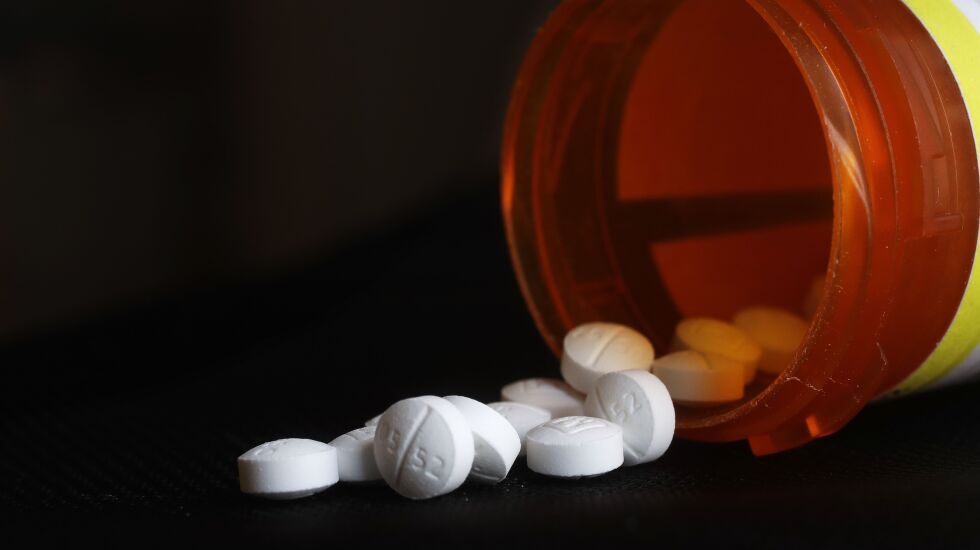
The City of Chicago recently announced plans to direct millions from settlements with opioid manufacturers and distributors to fight the opioid epidemic. While better access to overdose treatments and medication-assistance recovery resources is important, it’s much of the same: a downstream approach to combat a crisis that continues to take the lives of our neighbors and family members at an unacceptable rate.
Meanwhile, a federal policy to prevent needless opioid exposure is held up until 2025, putting tens of millions of patients at risk of developing an opioid use disorder over the next two years.
The Biden administration must implement this policy — the Non-Opioids Prevent Addiction in the Nation Act, or NOPAIN Act — in 2024 to expand access to safe, non-opioid therapies for pain management and to protect Illinoisans from addiction. Without action, more patients in Illinois, and elsewhere in the country, will die from a preventable prescription opioid overdose.
Advances in preventing overdose deaths and treating opioid use disorders have done wonders to assist individuals to enter recovery. However, we are still struggling to curb the skyrocketing human toll of the opioid use disorder crisis. In 2021 alone, we lost over 3,000 Illinoisans to an opioid-related overdose — the deadliest year in our state’s recorded history.
As we work to support those with opioid use disorder, we must also ask: What can we do to prevent opioid misuse?
Incentive to use opioids
In many cases, those who developed an opioid use disorder started with prescribed opioid pain medications. Prescription opioid medications were the norm, because, for over 20 years, federal reimbursement policy has incentivized opioids over non-opioid options for pain management.
Recent guidance from the U.S. Centers for Disease Control and Prevention says non-opioids are just as effective for managing acute pain and should be used as a first-line therapy, but opioid overprescribing is baked into the system. The opioid epidemic cost the U.S. nearly $1.5 trillion in 2020 alone, up 37% from just three years prior. If we don’t act, decades-old prescribing incentives will continue to prevent the use of non-addictive options for pain, leading to more unnecessary, costly and dangerous opioid exposure.
Here in Illinois, organizations like Prevention First are doing their part by working with community-based organizations, educational institutions and state government on proven strategies to prevent individuals from developing a substance use disorder. We focus on addressing the root causes and look for opportunities to change behaviors and practices. We implement a variety of public awareness campaigns and support community coalitions and organizations to strategically implement evidence-based practices and address substance use across the continuum of care. We advance the work of prevention each and every day at the state and community levels, but there are certain levers only federal healthcare leaders can pull to protect Illinoisans from the needless harms of opioid misuse and overdose.
Fortunately, lawmakers in Washington, D.C., united around the NOPAIN Act at the end of 2022 to address those problems. Beginning in 2025, the policy will expand access to non-opioid pain management options to treat acute pain in outpatient settings. But two more years is too long to wait for these policies. The Biden administration and the Centers for Medicare and Medicaid Services (CMS) must prioritize the NOPAIN Act and implement the policy in 2024 to ensure that the tens of millions of patients who undergo an outpatient procedure each year have access to non-opioid approaches.
Waiting to implement the NOPAIN Act has fatal consequences. With over 80,000 opioid-related overdose deaths nationwide in 2021 alone, we pay the price of inaction in lost lives. Lawmakers finally stepped up to help prevent addiction before it starts through the NOPAIN Act. CMS must see it through.
Karel Homrig is CEO at Prevention First in Springfield, Illinois.
Send letters to letters@suntimes.com
The views and opinions expressed by contributors are their own and do not necessarily reflect those of the Chicago Sun-Times or any of its affiliates.







